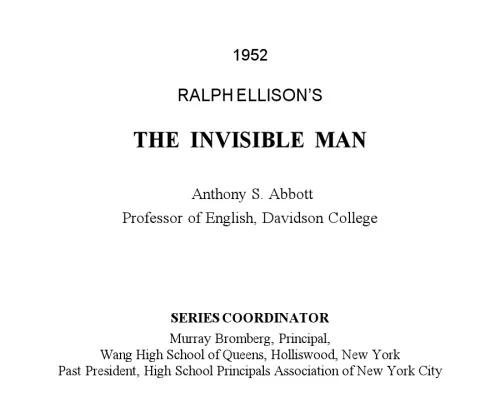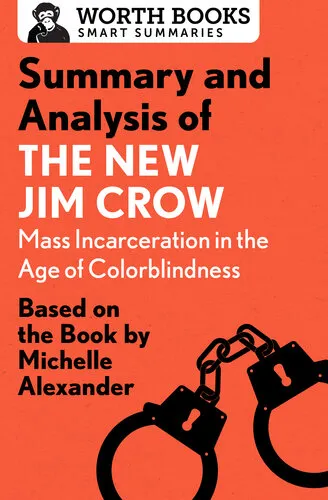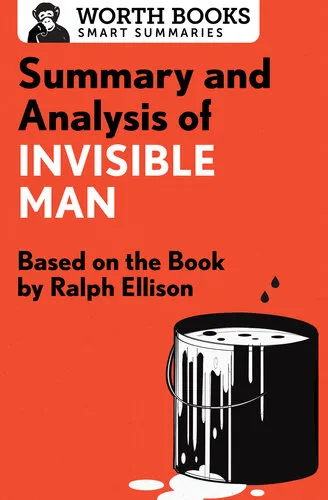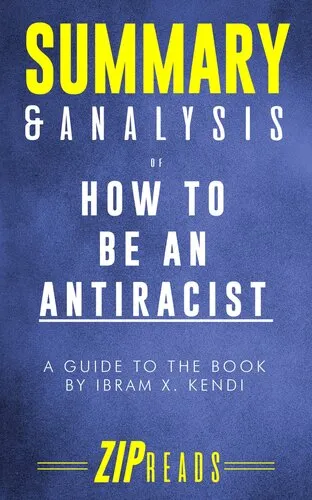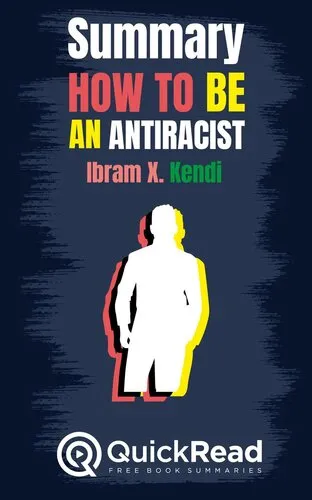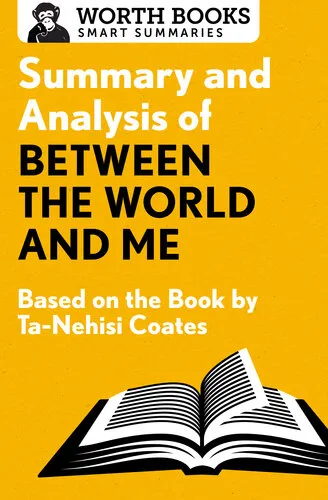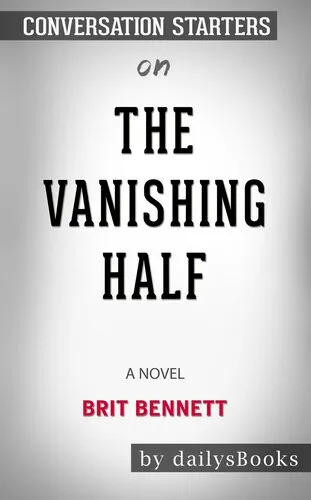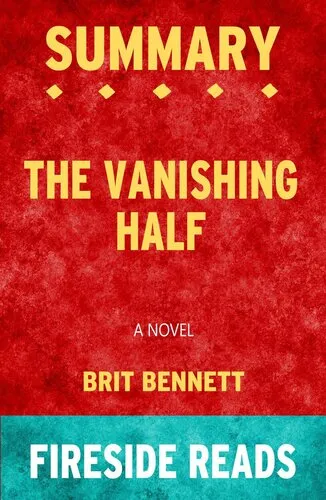Ralph Ellison’s The Invisible Man
3.9
Reviews from our users

You Can Ask your questions from this book's AI after Login
Each download or ask from book AI costs 2 points. To earn more free points, please visit the Points Guide Page and complete some valuable actions.Related Refrences:
Introduction to 'Ralph Ellison’s The Invisible Man'
"Ralph Ellison’s 'The Invisible Man'" is a profound and complex exploration of race, identity, and individuality. First published in 1952, Ellison’s debut novel has earned its place as a cornerstone of American literature, capturing the existential plight of black Americans in a society that refuses to see them.
Detailed Summary of the Book
The novel begins in the underground hideout of the unnamed narrator, an African-American man living in Harlem. He describes himself as "invisible," not literally, but because society refuses to acknowledge him as a person with his own identity. As he recounts his life story, the narrative explores his journey from the South to a black college, followed by a disillusioning experience in New York City.
The narrator's journey reflects his struggle to find an identity while navigating the racial and social prejudices of 20th-century America. Along the way, he encounters various organizations such as the 'Brotherhood,' which claim to fight for social justice but often exploit its members. The novel’s symbolic and sometimes surreal narrative delves into themes of invisibility and the pervasive blindness of society towards the individuality of black men and women.
Key Takeaways
The novel tackles several pivotal themes, including:
- Identity and Invisibility: The idea of invisibility is central to the novel, serving as a metaphor for the marginalization and erasure of black identity in America.
- Power and Oppression: Through the narrator's experiences, Ellison highlights the dynamics of power and how systemic racism is maintained through societal and institutional structures.
- The Search for Self: The narrator's journey is also an internal one, as he seeks to define himself outside of the labels and limitations imposed by society.
Famous Quotes from the Book
"I am an invisible man. No, I am not a spook like those who haunted Edgar Allan Poe; nor am I one of your Hollywood-movie ectoplasms. I am a man of substance, of flesh and bone, fiber and liquids—and I might even be said to possess a mind. I am invisible, understand, simply because people refuse to see me."
This quote introduces the reader to the novel's central theme of invisibility and sets the tone for the narrator’s exploration of identity.
"Life is to be lived, not controlled; and humanity is won by continuing to play in face of certain defeat."
This quote reflects Ellison's message of resilience and the importance of living authentically despite adversity and societal constraints.
Why This Book Matters
"The Invisible Man" is more than just a narrative about race relations. It is a profound commentary on the human condition and the quest for self-definition in a world eager to stifle individuality. Ralph Ellison’s masterpiece challenges readers to confront uncomfortable truths about society and their own perception of others. Its impact on literature and culture is immeasurable, offering insights not only into the African-American experience but also into the universal search for identity.
The novel remains a potent reminder of the struggles faced by those who are marginalized and the power of narrative to effect change. Its intricate storytelling and profound themes make it an essential read for anyone interested in exploring the complexities of race, identity, and personal freedom.
Free Direct Download
You Can Download this book after Login
Accessing books through legal platforms and public libraries not only supports the rights of authors and publishers but also contributes to the sustainability of reading culture. Before downloading, please take a moment to consider these options.
Find this book on other platforms:
WorldCat helps you find books in libraries worldwide.
See ratings, reviews, and discussions on Goodreads.
Find and buy rare or used books on AbeBooks.
1544
بازدید3.9
امتیاز0
نظر98%
رضایتReviews:
3.9
Based on 0 users review
Questions & Answers
Ask questions about this book or help others by answering
No questions yet. Be the first to ask!
